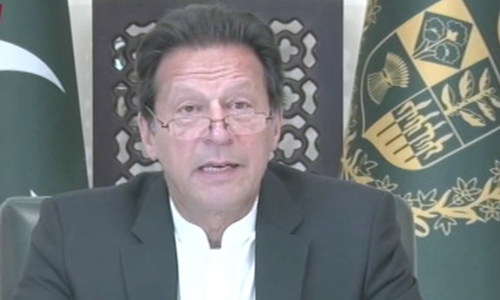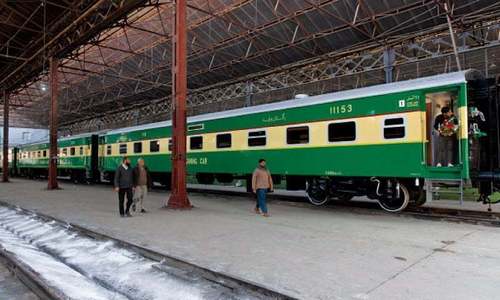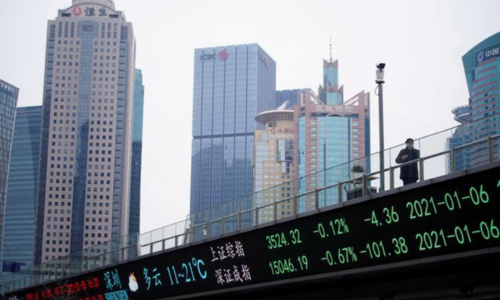ISLAMABAD: Categorically stating that Pakistan’s stance on Israel’s violations of human rights in Palestine is anti-Zionist and not anti-Semitic, President Dr Arif Alvi on Tuesday urged Muslim states to make themselves economically strong and stable so that their voice could have weight in the international community.
“Pakistan’s stance on Israel’s violations of human rights is ‘not anti-Semitic, but anti-Zionist’ as we are against genocide. We are not against Jews or Christians, but against all oppressors of humanity,” the president said while addressing the inaugural session of Second Conference of Parliamentary Assembly of the Economic Cooperation Organisation (ECO) countries.
“Your voice will be only heard at global platform if you are economically strong and stable,” he said, expressing the confidence that Muslim countries would join hands in giving the world a strong message on Islamophobia.
President Alvi said the West’s double standards and hypocrisy in the name of “freedom of expression” where the incidents of blasphemy of the Holy Prophet (peace be upon him) were on rise compared with the intolerance against a slight discussion on Holocaust.
He also said that labeling the freedom movement of Palestinians and Kashmiris as terrorism by Israel and India was another approach of seeing them through the prism of prejudice.
The conference gathered speakers and representatives of national parliaments of Afghanistan, Azerbaijan, Iran, Kazakhstan, Kyrgyzstan, Pakistan, Tajikistan, Turkey, Turkmenistan and Uzbekistan.
“There must be a greater trade and connectivity among ECO countries to attain the goals of cohesive regional development and prosperity,” the president said, adding that economic integration among regional states could act as an effective driver to foster sustainable peace and security.
He emphasised the need for proper tapping of the region’s immense resources by the ECO states to nurture alliances for a win-win economic stability. He also called for making a viable regional integration through open trade market for sustainable development and poverty alleviation.
“The ECO region, with its eight million square-kilometre land and 500 million people, comprising six per cent of the world population, has potential to become economic power through institutionalised trade policy reforms,” he said.
President Alvi said that in today’s world, where morality was becoming irrelevant next to the oppressor’s own whims and wishes, a strong leadership and approach promoting the ethos of humanity was direly needed.
Speaking at the conference, National Assembly Speaker Asad Qaiser said Pakistan believed in parliamentary partnership among the ECO states to ensure socio-economic development. “Bound by the bonds of religion, culture and history, it is imperative upon the ECO countries to play a positive role in the comity of nations,” he added.
He said economic connectivity in the region was significant to deal with the challenges of terrorism amidst the risk posed by non-state actors as enemy of prosperity. He proposed setting up of an ECO investment agency, establishment of inter-regional linkages and promotion of knowledge-based economies.
The speakers of the ECO member countries, present on the occasion and also virtually, highlighted different aspects of their mutual cooperation by overcoming regional issues, promoting harmony, safeguarding political liberties and strengthening parliamentary linkages.
Meanwhile, the SDGs Secretariat of the National Assembly of Pakistan hosted a panel discussion session on “Impact of Covid-19 on the Implementation of SDGs in the Region”. The session was attended by parliamentary delegates from Afghanistan, Azerbaijan, Iran (virtual), Kazakhstan (virtual) and Turkey.
Alvi meets Turkish speaker, Qatari delegation
President Arif Alvi said Pakistan highly valued its ties with Turkey as both countries enjoyed excellent relations based on religious and cultural linkages, besides unanimity of views on regional and international issues. He said relations between the two countries had transformed into a strong strategic partnership over the years and would continue to grow further.
The president made these remarks while talking to Speaker of Grand National Assembly of Turkey Dr Mustafa Sentop, who called on him.
Mr Alvi underscored the need for enhanced political and economic cooperation between the two countries for mutual benefits of the two sides.
The president said the people of Pakistan were highly grateful to the leadership of Turkey for supporting Pakistan’s principled stance on Kashmir at all international fora. He also acknowledged that Turkey had been at the forefront of leading the global efforts to fight the Covid-19 pandemic by providing support and assistance to countries, including Pakistan.
Meanwhile, during a meeting with a Qatari delegation, President Arif Alvi said Pakistan was committed to transforming the existing relations with Qatar into a more robust political and economic partnership for the mutual benefits of the two countries.
He said Pakistan and Qatar enjoyed excellent relations which needed to be further strengthened in the areas of trade, economy and investment.
The delegation was led by Shiekh Ali Abudllah Thani Al-Thani, a member of the Qatari royal family.
The president told the delegation that Pakistan offered most liberal and investment-friendly regime in the region and Qatari investors needed to benefit from it. He welcomed the Qatar Investment Authority’s interest in various sectors of Pakistan’s economy. He expressed the hope that a direct linkage between Karachi and Hamad ports would further enhance trade between the two countries.
President Alvi briefed the delegation on the economic performance of Pakistan, saying the country’s economy was growing well despite the Covid-19 pandemic.
He said Pakistan’s ranking in the Ease of Doing Business Index had considerably improved and Qatari investors needed to take advantage of the investment-friendly environment.
Published in Dawn, June 2nd, 2021














































